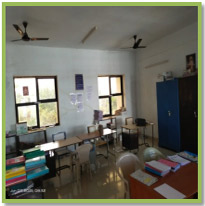To become an institution of excellence which promotes Civil Engineering knowledge both theoretically and practically, contributing to the development of our country.
PO1: Apply mathematics, science and engineering fundamentals.
PO2: Identify and analyze engineering problems.
PO3: Design and develop engineering solutions.
PO4: Apply modern engineering tools.
PO5: Engineering practices for sustainability and ethics.
PO6: Project management and teamwork.
PO7: Life-long learning.
The Civil Engineering Department was started in 2010 with basic equipment for the Diploma course. Since then, the laboratories have been upgraded multiple times. The department includes classrooms, laboratories, offices, and a two-storey academic block with a comprehensive machine shop supporting faculty research activities.

Civil engineers relying on outdated concepts cannot succeed in a rapidly evolving environment. Our department focuses on integrated learning and continuous development to prepare students for future challenges in Civil Engineering.
| Name Of The Staff | Responsibility |
|---|---|
| Dr. K. Kalaiselvan, M.E., Ph.D. Head of the Institution Sri Ranganathar Institute of Polytechnic College |
President |
| Mrs. R. Shree Vidhya, BE, ME Head of the Department |
Coordinator |
| Mr. A. Muhaideen Mubarak, BE Lecturer |
Convener |
| Mr. Vignesh Babu SAHA Vinayaga Associates, Coimbatore |
Member |
| Ms. S. Umavani Kavundampalayam, Coimbatore |
Member |
PEO1: Promote lifelong learning and professional growth.
PEO2: Develop innovative engineering solutions.
PEO3: Encourage creative and integrative engineering activities.
PEO4: Exhibit technical competency and ethical responsibility.
PSO1: Apply engineering and laboratory skills in civil works.
PSO2: Analyze and design civil engineering systems.
PSO3: Work professionally in multidisciplinary environments.



